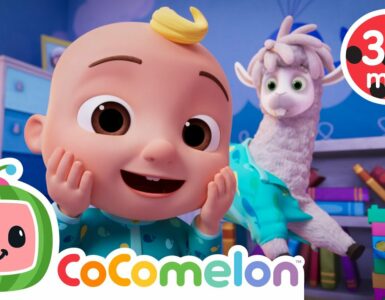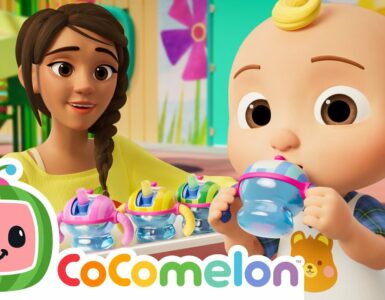The Significance of “Sick Song” in Cocomelon Nursery Rhymes
Understanding “Sick Song”
“Sick Song,” a prominent entry in the Cocomelon Nursery Rhymes lineup, serves as a charming and educational piece aimed at young children. It captures the everyday experiences surrounding children feeling under the weather, depicted in an accessible and relatable manner. As parents or guardians may find themselves facing similar scenarios, this song offers both comfort and understanding through music’s magical lens. The catchy tunes combined with vivid animation resonate with kids, providing them not just entertainment but also a gentle way to process feelings of sickness, empathy for others, and even the essential habits related to health care — like washing hands or taking medicine.
Sick Song cocomelon song Lyrics
My little baby, not feeling well?
You have a fever, Daddy can tell.
Rest little baby, I’ll care for you.
You’ll get well soon, I’ll make sure you do.
My little baby, not feeling well?
I hear you coughing, Mommy can tell.
Rest little baby, I’ll care for you.
You’ll get well soon, I’ll make sure you do.
My little baby, not feeling well?
Your nose is running, Mommy can tell.
Rest little baby, I’ll care for you.
You’ll get well soon, I’ll make sure you do.
My little baby, not feeling well?
You had a cold, oh Mommy can tell.
Rest little baby, I’ll care for you.
You’re feeling better, we’ll care for you.
My little baby, not feeling well?
Your nose is running, Mommy can tell.
Rest little baby, I’ll care for you.
You’ll get well soon, I’ll make sure you do.
My little baby, not feeling well?
You had a cold, oh Mommy can tell.
Rest little baby, I’ll care for you.
You’re feeling better, we’ll care for you.
Sick Song + More Nursery Rhymes Lyrics & Kids Songs – CoComelon
Sick Song cocomelon with lyrics is a Cody’s Favorite Song Cocomelon for children. This is one of the songs about a children’s bathroom, produced by Cocomelon. Include songs and lyrics for babies.
Imagine a child who wakes up not feeling well; instead of diving into a world solely filled with medicines and symptoms, “Sick Song” encases that experience in whimsy and fun, crafting a bridge between reality and playful representation. This nurtures emotional intelligence, allowing kids to relate their experiences and learn proactive approaches to handling illness. Furthermore, it implicitly teaches resilience—a concept fundamental in childhood development—by showing that being sick is merely a part of life, one that passes with the right care and support.
Educational Themes in a Playful Package
Within its cheerful melody, “Sick Song” weaves numerous educational themes endemic to the Cocomelon philosophy. For instance, children are often encouraged to express what they feel, opening pathways for effectively communicating emotions—a skill that individuals will carry throughout their lives. Let’s say, hypothetically, a child listens to this song after having a fever; the next time they observe another friend feeling unwell, they might connect their emotions back to the Cocomelon song, fostering sympathy and encouraging them to help their friend feel better.
Additionally, Cocomelon’s methodology encourages discussions about health-related practices without creating fear or negativity. For example, if a child is introduced to the idea of visiting a doctor via a soothing musical rhyme rather than a parental lecture, they might approach such visits with less anxiety and more curiosity. This transformative narrative reduces stigma associated with illness, illustrating that everyone gets sick sometimes and that help is always available.
The Broader Cultural Context
In considering the broader implications of this nursery rhyme, it’s vital to acknowledge how Cocomelon products reflect contemporary parenting ethos. Parents today are increasingly aware of the need for media literacy within children’s programming; thus, shows aiming to balance entertainment with education are witnessing a surge in popularity. “Sick Song” fits seamlessly into this framework as it shines light on important topics using gentle humor and calm presentation, catering to parents looking for screens that serve an educational purpose while still engaging young audiences.
Moreover, as global health issues become more complicated, the necessity for children to understand their own health, and that of their peers, takes on increased importance. It’s conceivable that future parents will turn to songs like “Sick Song” not only as a source of enjoyment but also as a springboard to nurturing informed, empathetic citizens ready to engage in global health dialogues.
Emotional Resonance and Psychological Insight
Ultimately, songs like “Sick Song” encapsulate far more than basic storytelling; they evoke emotional resonance that can influence a child’s psychological landscape. When a child sings along to a tune vibing positivity around an otherwise negative experience like being sick, they are internalizing coping mechanisms. This can pave the way for healthier attitudes towards discomfort and adversity—an invaluable lesson in life skills woven delicately into a comforting melody.
Taking the listener through a journey where they can articulate mundane yet significant experiences transforms a simple toe-tapping refrain into a foundational life lesson. Through songs like these, Cocomelon gently cultivates a generation that’s not only musically literate but also emotionally aware—something that could wield profound positive impact in our rapidly evolving societies.
















